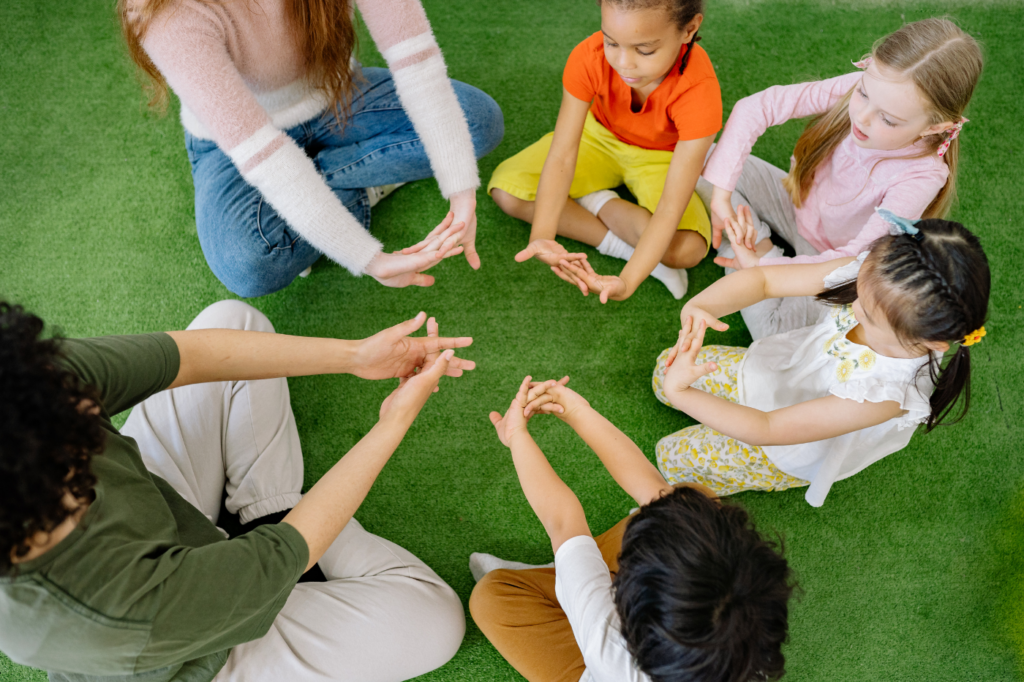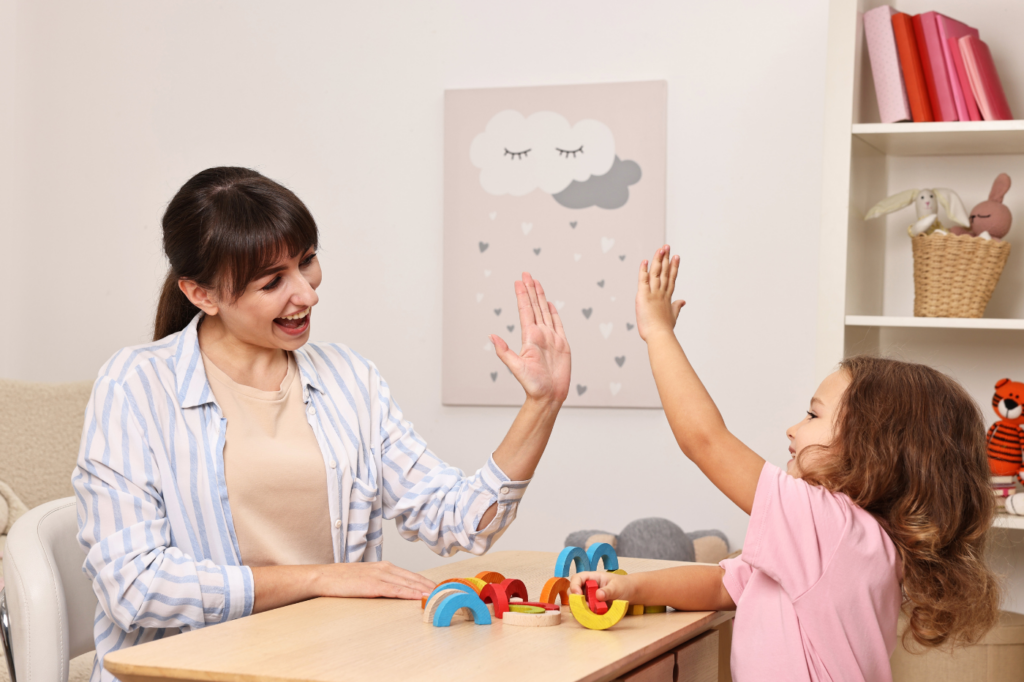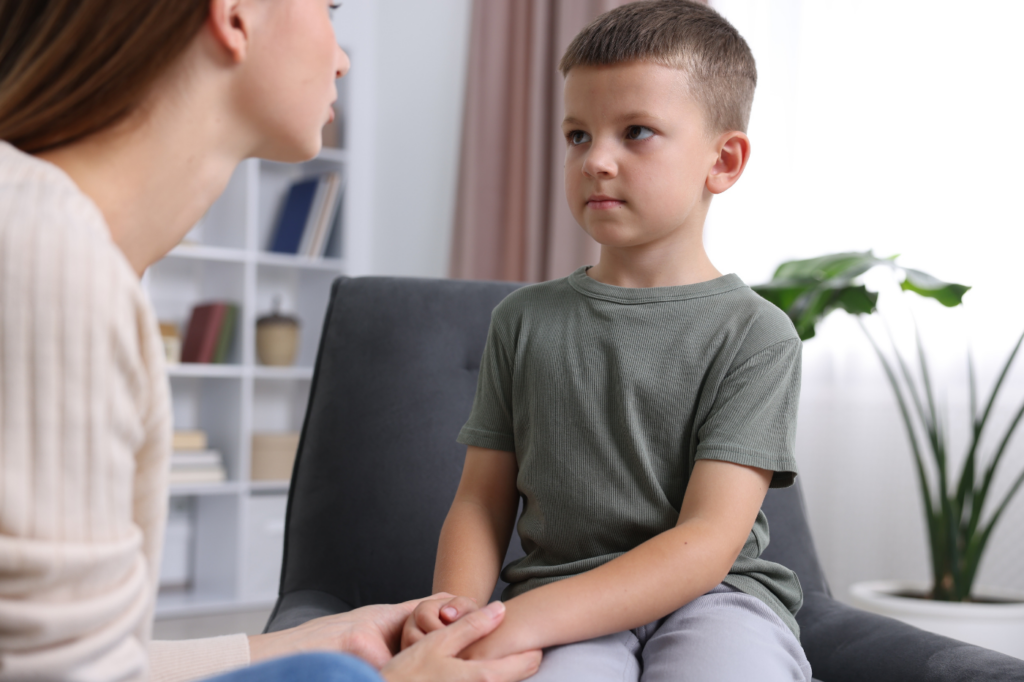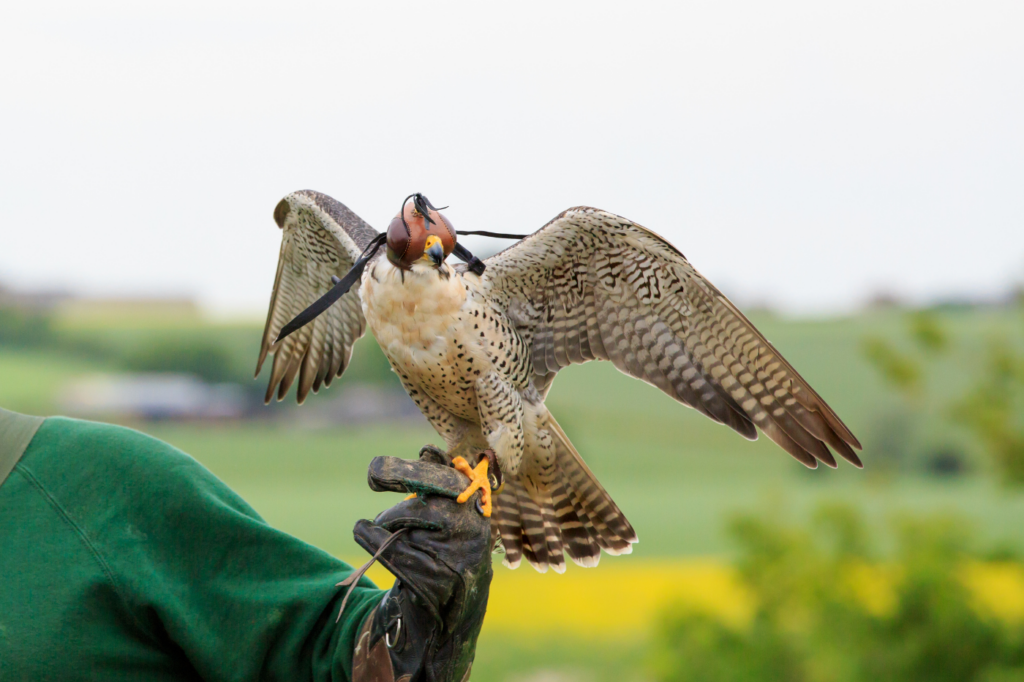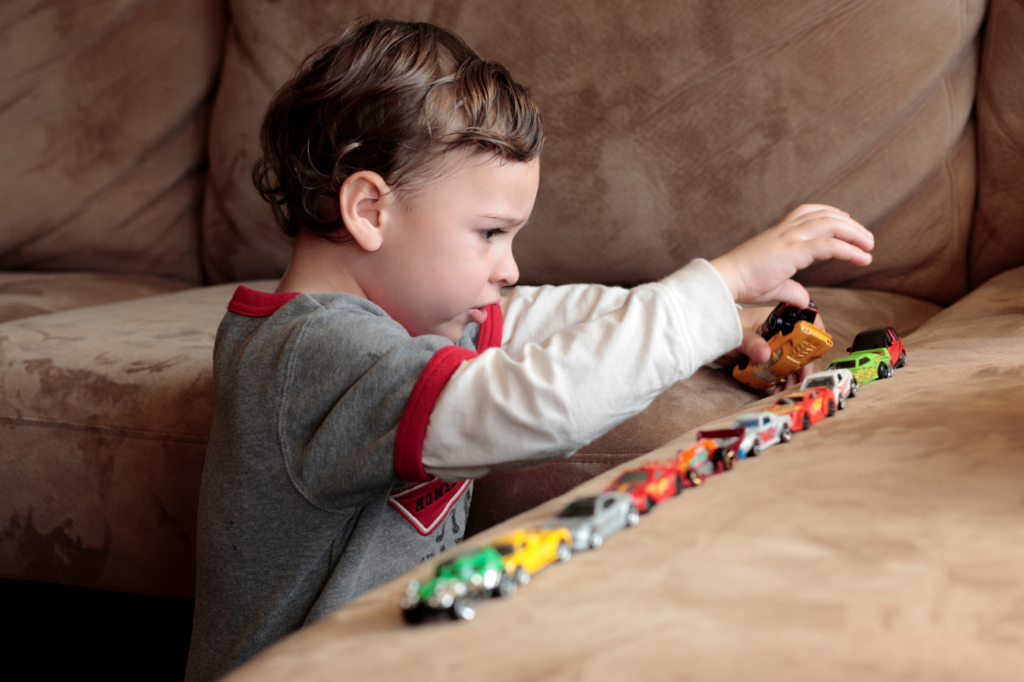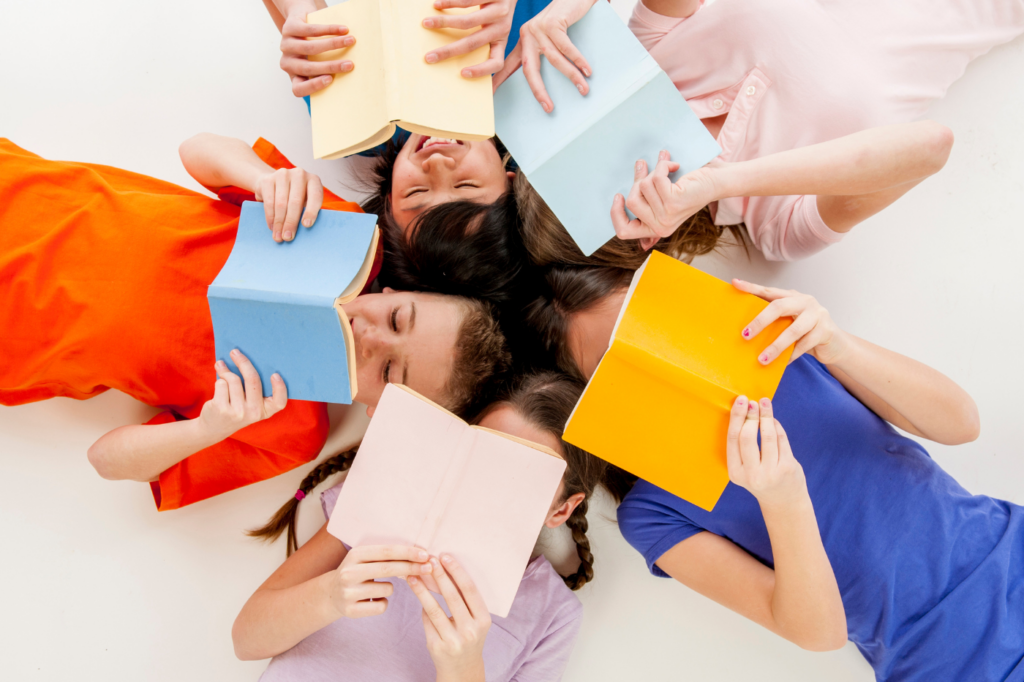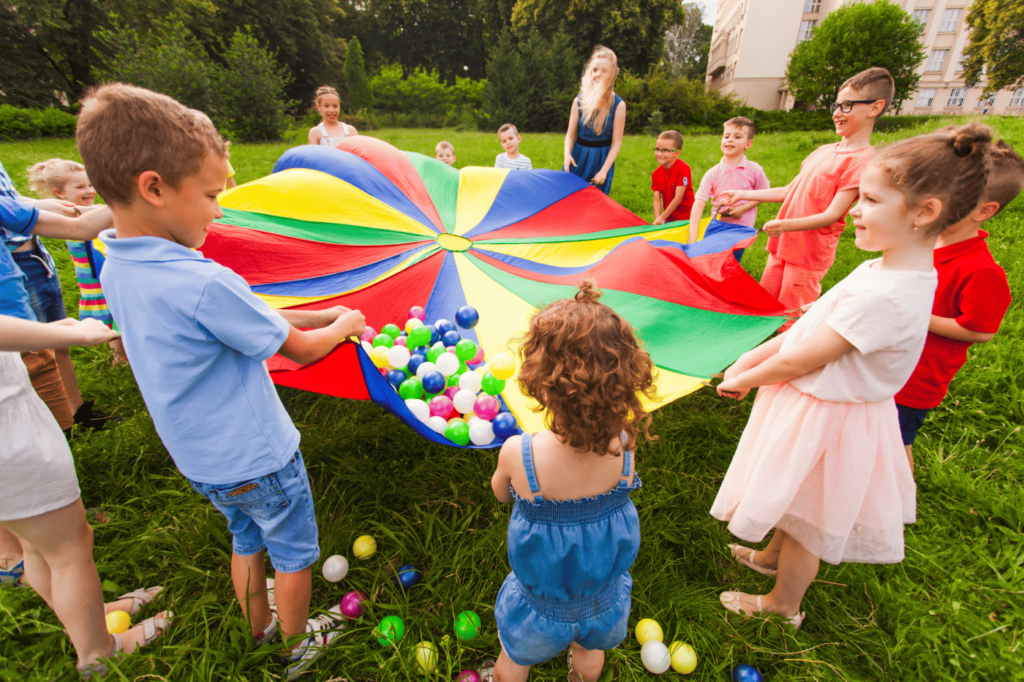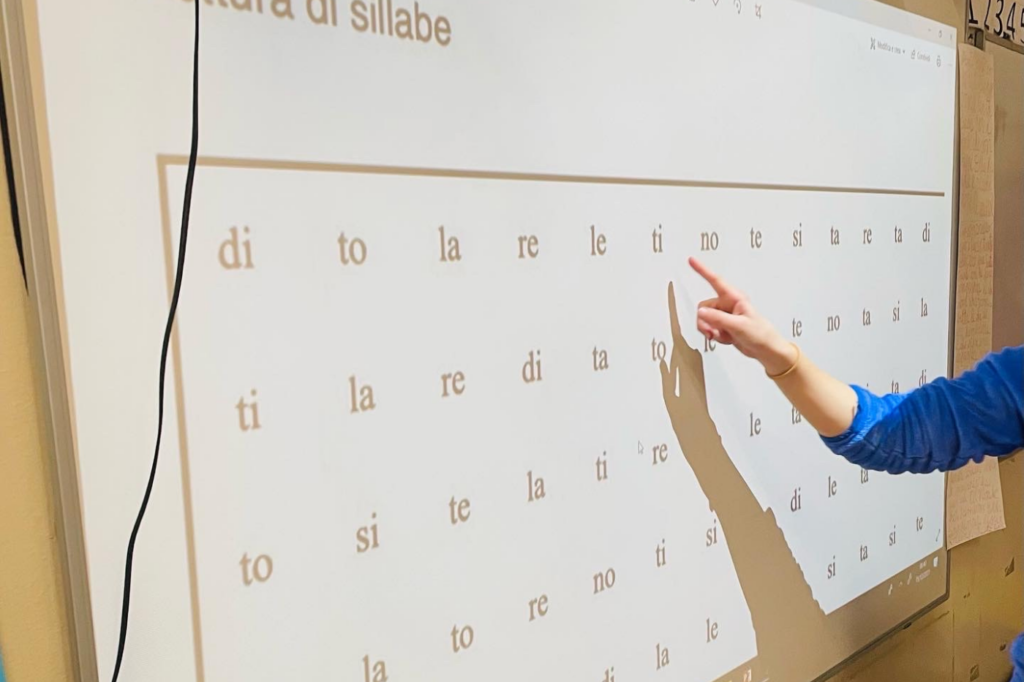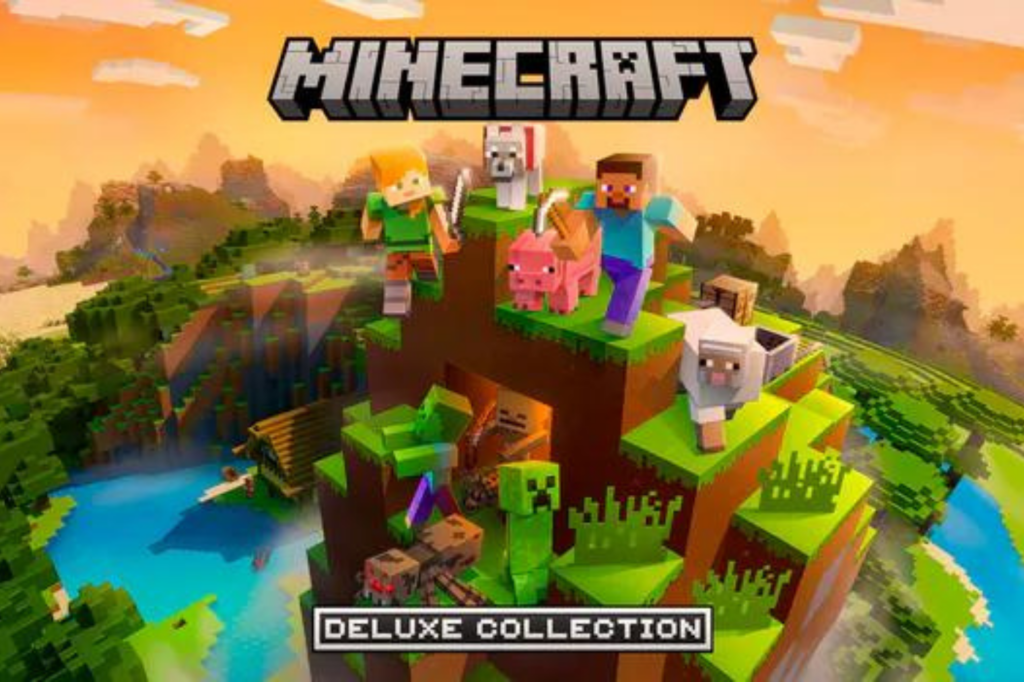Nel cerchio del lunedì, Amina e Lucia scoprono il privilegio: il nodo in gola si scioglie quando trova voce, ascolto e gentilezza.
Leggi di piùConsenso e assenso nell’intervento psico-educativo: il bambino ha diritto di scegliere (anche di dire no)
Con i minori, il consenso è dato dai genitori o tutori, ma il professionista deve anche cercare l’assenso del bambino, coinvolgendolo in modo comprensibile e rispettoso della sua età e...
Leggi di piùConsenso e assenso nell’intervento ABA-based
Con i minori, il consenso è dato dai genitori o tutori, ma il professionista deve anche cercare l’assenso del bambino, coinvolgendolo in modo comprensibile e rispettoso della sua età e...
Leggi di piùConsenso informato nella valutazione psicologica con minori
Con i minori, il consenso è dato dai genitori o tutori, ma il professionista deve anche cercare l’assenso del bambino, coinvolgendolo in modo comprensibile e rispettoso della sua età e...
Leggi di piùOltre la diagnosi: cosa ci dice davvero questa ricerca sulla neurodivergenza
La ricerca mostra che le principali difficoltà della neurodivergenza nascono dai sistemi sociali, non dalle persone: serve ripensare servizi, scuola e welfare.
Leggi di piùQuando la sicurezza diventa relazione: un modello condiviso di cura e protezione
Dallo stress individuale a una procedura condivisa per tutelare famiglie e professionisti
Leggi di piùLa sicurezza nasce dall’ascolto: le voci dei tirocinanti
Accogliere e condividere le paure dei tirocinanti significa trasformarle in occasioni di crescita e costruire una comunità professionale più sicura e consapevole.
Leggi di piùIl talento nello spazio del “Noi”
Il talento emerge nelle relazioni. Non basta averlo, serve qualcuno che lo riconosca e lo aiuti a diventare possibilità: serve il noi.
Leggi di piùI pensieri di slime. Quando le preoccupazioni si appiccicano alla mente!
I pensieri di slime sono preoccupazioni che si attaccano alla mente. Parlarne con qualcuno aiuta a renderli meno pesanti e a gestire meglio l’ansia.
Leggi di piùIntelligenza Artificiale nell’Educazione: Benefici e Rischi per Studenti Neurodivergenti
Quando il linguaggio può fare la differenza: una breve guida!
Leggi di piùParole che includono: quando il linguaggio fa la differenza
Quando il linguaggio può fare la differenza: una breve guida!
Leggi di piùIl video modeling per insegnare abilità vocazionali a un adolescente neurodivergente
Un passo avanti per la qualità della vita: l’efficacia del protocollo RIRD nel trattamento delle stereotipie motorie Autrici: Beatrice Fabbri (Università degli Studi di Parma) e Luca Vascelli (Tice Cooperativa...
Leggi di piùL’Efficacia del Protocollo RIRD nel trattamento delle stereotipie motorie
Un passo avanti per la qualità della vita: l’efficacia del protocollo RIRD nel trattamento delle stereotipie motorie Autrici: Rosmary Di Dio (Università di Parma) e Iris Pelizzoni (Centro Tice) Il...
Leggi di piùMigliorare la Velocità e l’Accuratezza di Lettura
Migliorare la Velocità e l’Accuratezza di Lettura nei Bambini con Dislessia: Il Ruolo del Rapid Automatized Naming (RAN) Autrici: Giulia Sellaro (Università di Parma) e Maria Stabile (BACO Cooperativa Sociale)...
Leggi di piùProgetto Community: ADHD, regolazione emotiva e promozione della cultura della neurodiversità
ADHD, regolazione emotiva e promozione della cultura della neurodiversità Autrici: Federica Gaiotti (ASL Vercelli) e Francesca Cavallini (Tice Cooperativa Sociale, Università di Parma) Questo studio esplorativo ha valutato l’impatto di...
Leggi di piùCircle time e abilità sociali
Circle time e abilità sociali: la ricerca Autrici: Michela Maria Palumbo (Università di Parma) e Dott.ssa Vincenza Cascavilla Questo studio ha indagato l’efficacia del Circle Time come intervento per migliorare...
Leggi di piùCompetenze emotive e sociali: la ricerca
Competenze emotive e sociali: la ricerca Autrici: Elena Nocetti (Università di Parma) e Monica Cattalini (Tice Cooperativa Sociale) Questo studio si concentra su un intervento psicoeducativo per migliorare le competenze...
Leggi di piùCarriera Alias nelle scuole e nelle aziende
Carriera Alias nelle scuole: di cosa si tratta e come possiamo attivarla. Ne parliamo con Iris Pelizzoni, psicologa queer e responsabile dei gruppi psicologici Lgbqtia+ di Tice
Leggi di piùCari genitori di bambinə neurodivergenti
In questo articolo vi riportiamo la meravigliosa lettera che ci è stata inviata da una mamma Adhd. Da leggere subito!
Leggi di piùC’è una mamma più mamma nelle famiglie omogenitoriali?
È un pezzo provocatorio, ma che fa riflettere. Esiste la mamma vera? Risponde Francesca Cavallini, psicologa e mamma arcobaleno.
Leggi di piùLa meravigliosa lettera di una nostra lettrice, mamma ADHD
In questo articolo vi riportiamo la meravigliosa lettera che ci è stata inviata da una mamma Adhd. Da leggere subito!
Leggi di piùSessualità e neurodiversità
In questo articolo Francesca Cavallini, psicologa neurodivergente, affronta una tematica di grande interesse: sessualità e neurodiversità
Leggi di piùPosso farti una domanda?
È normale essere curiosi di fronte a persone che hanno dei comportamenti atipici, ma non sempre è lecito chiedere.
Leggi di piùLa sindrome di Tourette
Francesca ha ricevuto una lettera di un ragazza innamorata di un ragazzo Tourette. Leggiamola insieme.
Leggi di piùChi è la moglie?
Esistono dei ruoli nelle coppie omosessuali? Lo scopriamo con Francesca Cavallini in questo articolo
Leggi di piùPerchè hai due mamme? Perchè hai due papà?
La domanda che viene fatta più spesso ai figli e figlie di famiglie omogenitoriali. Come possiamo aiutarli a rispondere?
Leggi di piùDimenticanze e neurodivergenza
La vita di una persona adhd è costellata da dimenticanze. Ne parla in questo articolo Francesca Cavallini.
Leggi di piùFestività e persone neurodivergenti
Come vivono le festività le persone neurodivergenti? Ne parliamo con Francesca Cavallini, psicologa neurodivergente, in questo articolo.
Leggi di piùMi sono innamorato di una donna asperger
In questo articolo vi racconto di una mail che ci è arrivata da parte di una persona che si è innamorata di una donna neurodivergente.
Leggi di piùLe famiglie omogenitoriali e il desiderio di essere perfette
La voglia di essere perfetti. Quando sei parte di un gruppo marginalizzato esistono dei piccoli rischi psicologici che non si vedono ma si insidiano silenziosi.
Leggi di piùOmogenitorialità e religione
Quando le mie figlie mi hanno chiesto perchè il prete non sa che sono omosessuale, ho faticato a trovare una risposta.
Leggi di piùAdhd e lavori di casa
In questo articolo Francesca racconta del rapporto con i lavori di casa, visti con gli occhi di una donna adhd.
Leggi di piùSessualità e donne adhd
Se ne parla poco, ma la sessualità delle donne adhd è un argomento delicato che richiede approfondimento. Leggi qui l'articolo!
Leggi di piùPrecision Teaching: che cos’è?
Precision Teaching rappresenta un passo avanti nell'evoluzione della didattica. In questo articolo vi spieghiamo di cosa si tratta.
Leggi di piùAnsia, Donne e Adhd: che rapporto c’è?
I questo articolo, Francesca Cavallini, donna Adhd, parla del rapporto tra ansia e Adhd
Leggi di piùFarsi ascoltare da una donna ADHD
I consigli di Francesca Cavallini, psicologa neurodivergente, per farsi ascoltare da una donna Adhd
Leggi di piùOmogenitorialità e altre culture
Le persone omosessuali in Italia non possono adottare, ma l'affido si, quello è permesso. Francesca ci racconta la sua esperienza.
Leggi di piùDue mamme e un donatore
Come parlare nella quotidianità del donatore? Ne parla Francesca Cavallini in questo articolo. Leggilo subito!
Leggi di più10 consigli per amare le donne Adhd
I consigli di Francesca Cavallini, psicologa neurodivergente, per amare una donna adhd
Leggi di piùGenitori e figliə con neurodivergenza
Come genitore di un bambino neurodivergente, ti sarai ritrovato ad affrontare commenti sul comportamento e il carattere di tuo figlio. Leggi qui!
Leggi di piùCosa è importante sapere della scuola quando sei un genitore LGBTQ+ o hai un* figli* LGBTQ+
La formazione del personale scolastico in temi LGBTQ+ è di fondamentale importanza. Ne parla Francesca Cavallini nel suo blog mensile sull'omogenitorialità
Leggi di piùL’impatto dell’ADHD sulle nostre prestazioni di guida
L'impatto dell'ADHD sulle nostre prestazioni di guida. Ne parliamo con Francesca Cavallini, psicologa neurodivergente.
Leggi di piùSei mia figlia fosse lesbica?
Anche le persone omosessuali possono vivere sentimenti di omofobia e pensando all'orientamento sessuale dei propri figli sperare che siano eterosessuali.
Leggi di piùGenitori con figliə neurodivergenti
Esiste un approccio "giusto" per crescere un figlio/a neurodivergente? Risponde in questo articolo Francesca Cavallini, psicologa neurodivergente.
Leggi di piùCosa sono i canali di apprendimento (learning channels)?
In una delle mie prime esperienze di precision teaching mi sono imbattuta nella matrice dei canali di apprendimento: vediamo insieme di cosa si tratta!
Leggi di piùQualche suggerimento per chi frequenta famiglie LGBTQIA+
Francesca Cavallini ci fornisce alcuni consiglii che riguardano un pò tutti i genitori e i famigliari che si relazionano con bambini di famiglie omogenitoriali.
Leggi di piùPerché usare le flashcard?
Le SAFMEDS sono una tecnologia di flashcard sviluppata da Lindsley e Graf, entrambi analisti del comportamento e esperti di Precision Teaching.
Leggi di piùScuole inclusive LGBTQIA+: alcune cose da osservare
Come porsi all'inizio dell'esperienza scolastica? In questo articolo Francesca Cavallini ci da alcuni suggerimenti su come porsi con il mondo della scuola.
Leggi di piùFirma neurodivergente
Come fare se sei un CEO di un'azienda neurodivergente? Se hai un lavoro che ti porta ad inviare molte mail? Leggi questo articolo, può aiutarti.
Leggi di piùPrecision Teaching e difficoltà in matematica
Precision teaching è una strategia semplice che può essere utilizzata a casa o a scuola per migliorare le abilità matematiche di base. Scopri come leggendo qui!
Leggi di piùLogopedia: servono gli esercizi a casa?
Molti genitori chiedono se serve fare degli esercizi a casa, oltre alla logopedia svolta durante la terapia in ambulatorio. Leggi qui cosa ha risposto Martina Di Giuseppe, logopedista di Tice.
Leggi di piùIl ciuccio: interferisce con il linguaggio?
Un'altra domanda molto frequente che viene fatta Martina Di Giuseppe, logopedista di Tice. Il ciuccio interferisce con lo sviluppo del linguaggio? Leggi qui la risposta!
Leggi di piùMiə figliə non parla: quando devo preoccuparmi?
Questa è la terza domanda a cui risponde Martina Di Giuseppe, logopedista di Tice. Mio figlio non parla: quando devo preoccuparmi? Leggi qui la risposta
Leggi di piùLogopedia: quanto dura?
Questa è la seconda domanda a cui risponde Martina Di Giuseppe, logopedista di Tice. Quanto dura e come è strutturato un percorso logopedico?
Leggi di piùLogopedia: quando iniziare
Questa la prima domanda a cui risponde Martina Di Giuseppe, logopedista di Tice. Esiste un'età giusta per iniziare la logopedia?
Leggi di piùHomogeneity and school
Come porsi all'inizio dell'esperienza scolastica? In questo articolo Francesca Cavallini ci da alcuni suggerimenti su come porsi con il mondo della scuola.
Leggi di piùChange the story, changing the communication of the diagnosis
Francesca Cavallini, psicologa neurodivergente, parla dell'importanza della comunicazione della diagnosi in ottica più inclusiva e rispettosa delle neurodiversità.
Leggi di piùABA and neurodiversity
È raro conoscere un’organizzazione che sostiene sia ABA sia il movimento per la neurodivergenza. Vediamo in questo articolo se è possibile con Francesca Cavallini, psicologa neurodivergente.
Leggi di piùCome faccio a sapere se sono neurodivergente?
Vuoi sapere se sei neurodivergente? Leggi subito questo articolo di Francesca Cavallini, psicologa neurodivergente
Leggi di piùWhat is the neurodiversity?
Neurodivergenza è il termine che indica le persone il cui cervello funziona in modo diverso in uno o più modi rispetto a quelli considerati standard o tipici.
Leggi di piùCome capire di essere neurotipico?
Francesca Cavallini, psicologa neurodivergente, spiega come capire di essere neurotipico. Leggi qui!
Leggi di piùWhat it means to be “neurotypical”?
In questo articolo Francesca Cavallini, psicologa neurodivergente, fa chiarezza sul termine neurotipico. Leggi qui!
Leggi di piùMom, in this country you can kiss?
Francesca, partendo da una domanda che le fa sua figlia B. quando vanno in vacanza, descrive come sia importante che venga tutelato il ruolo di un figlio.
Leggi di piùSurvey on the teaching based on the fluence for teaching people with Special Educational Needs
CONCLUDED Dottorata: Federica Berardo the first draft of The doctoral Federica Berardo had as objective to evaluate the efficacy and the efficiency of a training based on the fluence for teaching...
Leggi di piùPath of emotional support and parent training for parents with autistic children
IN the COURSE Phd student: Monica Cattalini The doctoral project of Monica Cattalini has the objective to evaluate the efficacy of a course of parent training and parent support for parents with...
Leggi di piùEffects regenerative outdoor therapy with adolescents
IN the COURSE Phd student: Chiara Marks The doctoral project to Clear the Marks has the objective of evaluating the effects regeneration of the setting in the external (outdoor) in intervention programs for adolescents...
Leggi di piùFeminism is intersectional in psychotherapy: how to recognize the social determinants
IN the COURSE Phd student: Valentina Tirelli, The project of the second doctoral Valentina Tirelli is to verify the level of knowledge of the psychotherapists in relation to social determinants, suggesting a...
Leggi di piùDevice technology and learning
IN the COURSE Phd student: Martina Semino The doctoral project has the objective of verifying the effectiveness of virtual reality in the strengthening and rehabilitation of up-motor of the upper limb in the multi-disability, in particular in the...
Leggi di piùSelf-efficacy, and Dsa: project alive and online
IN PROGRESS Phd: Maria Chiara Bags, The project has the objective to test the effectiveness of an online group for preadolescent boys with DSA to promote the self-esteem and well-being of the school. The...
Leggi di piùEffects of online communities based on the Act to promote acceptance and awareness
IN the COURSE Student: Carlo Cavallini, The project has the objective of developing a tool, one of the online groups, assessing their effectiveness in reducing the symptoms of anxiety-depression. Carlo CavalliniDottore in Psychology, Master's degree in...
Leggi di piùWhat to do for father's day?
In this article, Francesca Cavallini provides some tips for teachers who have in the classroom the children with two moms. What they can for the father's day?
Leggi di più5 questions to do with two moms lesbian
In this article Francesca Cavallini tells us which questions not to do to a pair of mothers. When the curiosity can become inoppotuna.
Leggi di piùHow to say it to your family of origin?
In questo articolo, Francesca Cavallini racconta da psicologa dello sviluppo e mamma lesbica come parlare alla propria famiglia di origine. Leggi qui!
Leggi di piùWhen talk of fertilization heterologous now!
In questo articolo, Francesca Cavallini risponde alla domanda: quando parlare di fecondazione eterologa...l'articolo è scritto con apertura e sensibilità
Leggi di piùHow many thoughts!
In questo articolo, Francesca Cavallini racconta da mamma lesbica i suoi pensieri sulla fecondazione eterologa. Lo fa con apertura e sensibilità. Leggi qui l'articolo!
Leggi di piùWhen you ask for advice?
In this video, Martina Semino summarizes the alarm bells that we can suggest the need to request a consultation of neuropsicomotricità.
Leggi di piùThe doubts of a mother is a lesbian on the heterologous
In this first article, Francesca Cavallini tells mom lesbian his doubts about the fertilization heterologous. It does so with openness and sensitivity. Read here!
Leggi di piùMotor development after the first year of life
Second video of the contacts Pills Neuropsicomotricità on the stages of motor development in the first year of life with Martina Semino.
Leggi di piùInfant massage:
in the summer with the perfect opportunity to practice it
Martina Semino ci descrive un efficace strumento attraverso cui rafforzare la relazione tra il bambino e il caregiver (Lee, 2006): il massaggio infantile. E quale miglior momento dell’estate per iniziare...
Leggi di piùThe DSA and the need for a new Mindset
From the point of view of Francesca Cavallini is a need to rethink a school able to offer the opportunity of learning different. Read it all here!
Leggi di piùThe stages of motor development end in the first year of life
Second video of the contacts Pills Neuropsicomotricità on the stages of motor development in the first year of life with Martina Semino.
Leggi di piùThe stages of motor development in the first year of life
First video of contacts Pills Neuropsicomotricità on the stages of motor development in the first year of life with Martina Semino.
Leggi di piùCome parlare della guerra ai più piccoli
Many parents ask us how to explain to their children what is happening in Ukraine. Talks about it in this article Francesca Cavallini.
Leggi di piùFirst menstruation: tips for parents
Faced with the growth and development of children often poses challenges, doubts, and questions that help us to grow together with them. Let's talk with Giulia Amorotti.
Leggi di piùOnline safety: tips for parents!
In this article, Angela Sacca, a psychologist of Tice, provides some hint operating for parents to deal with the possible risks of the Network.
Leggi di più“My son is too capricious!”
L’analisi applicata del comportamento può supportare con strumenti concreti genitori e professionisti nella descrizione di comportamenti, talvolta anche complessi, come i capricci.
Leggi di piùWhat do you feel when you're wrong?
The emotions experienced by Lorenzo when they fail, they make us reflect with the Dr. ssa Pelizzoni on the awareness of one's own value, regardless of the outcome, accepting the emotions less pleasant.
Leggi di piùSanta Claus really exists?
Imagination, creativity, and sincerity are issues absolutely psychological and, for this, we choose to talk about it with Dr. ssa Amorotti.
Leggi di piùProblem behaviour: decrease with increasing!
Possiamo pensare ai comportamenti problema come ad una occasione per vedere con più chiarezza quali nuove competenze possono essere promosse per migliorare il funzionamento e la vita della persona.
Leggi di piùNeuropsychomotricity and ABA:
to TICE the union makes the force!
Martina Semino describes how to TICE neuropsicomotricità and Behavior Analysis Applied enriching themselves with one another!
Leggi di piùIntervention ABA: not only at a table!
Farsi guidare dalla motivazione dell’individuo e includere gli obiettivi educativi in un contesto altamente gradevole è la base per ogni intervento psico-educativo.
Leggi di piùThe initials of the school: we have a little bit of clarity.
In the world of the school, there are many acronyms: let's do a little bit of clarity with Dr. ssa Iris Pelizzoni, a psychologist of Tice.
Leggi di piùABA
a science for all behaviors
socially significant
Pensi che l'Analisi Applicata del Comportamento (ABA) sia un metodo o una terapia? Questo articolo fa proprio al caso tuo!
Leggi di piùMinecraft: instructions for parents!
We learn about one of the most popular games and downloaded to the world. Understand the motivations that push millions of children and young people to play this game, allows us to...
Leggi di piùThat the vow you have taken?
How was the interrogation? Have you passed the exam? What the teacher told the task? How to survive the vows and live more peacefully!
Leggi di piùParents are superheroes
In different situations you may ask, "now what do I do?" We can find out with the Dr. ssa Giulia Amorotti what hides this question.
Leggi di piùStarts school!
The start of school is approaching, and for many parents this last week is an excellent opportunity to resume the schedules and habits of the school. Not to mention the mix of emotions that...
Leggi di piùTechnology: strengths and potential
The possibility of easy access to technological devices has added new opportunities for the cognitive development of the old and new generations. Let's see what the Dr. ssa Angela Sacc.
Leggi di piùFirst of all... well-being of school!
What will I experience when my son takes a bad grade? What do I think of myself as a parent when my daughter goes wrong at school? We see Dr. ssa Amorotti as all of this...
Leggi di piùParents and control
The planning of the summer often requires parents a lot of energy, opens the way to many questions and some thoughts can manifest itself in a much stronger way.
Leggi di piùInfant massage:
in the summer with the perfect opportunity to practice it
Martina Semino ci descrive un efficace strumento attraverso cui rafforzare la relazione tra il bambino e il caregiver, con enormi effetti positivi dimostrati sullo sviluppo e sulla maturazione del bambino...
Leggi di piùThe tasks of the holiday:
how to survive the summer
The school is already over for almost a month, and the children are already on vacation: there are those who attends the summer, who is on holiday with the Scout, who...
Leggi di piùThe tablet in your suitcase,
but not without some rules
On the beach with the tablet, to the shelter with the nintendo: the tablet in the suitcase is basic? If we can't do without, the Dr. ssa Saccà reminds us of some useful...
Leggi di piùLet's learn the multiplication tables
with the flashcards
Learn the multiplication tables can sometimes be a daunting task. With the flashcards, however, will certainly be a lot of fun!
Leggi di piùThe death of the dog (with Moaning & Kora)
The death of a dog is a painful moment, and for children may be the first time you lose someone you loved. How to tell her? Will he bear it? Let us ask a...
Leggi di più1, 2, 3...TikTok!
TikTok is the platform of the social the most downloaded in the world. Parents ask us if it is safe, at what age you can download, if it is right or not...
Leggi di piùMy son abuses animals,
what should I do?
Not always the way to relate to children with animals is correct and we can help them find a way that is more respectful.
Leggi di piùMom, I want to do it alone!
È importante offrire al bambino l'opportunità di costruire la propria autonomia, proponendogli occasioni di attività che rispondano al suo interesse e al grado del suo sviluppo motorio. Come fare? Ce...
Leggi di piùWhen the school makes you anxiety.
Learn how to study is like learning to read or write requires some important steps that together we will see the Dr. ssa Iris Pelizzoni.
Leggi di piùI just...even at school!
The school gym is perfect for the autonomy of life. We see with Martina Semino how to promote autonomous learning.
Leggi di piùI feel guilty: I yelled at my dog!
(with Moaning & Kora)
There are situations in which we have sgridarlo and right after that, we feel guilty!
Leggi di piùSimply DAD
Due to the health emergency Covid19, the school has had to adapt and reinvent themselves. We see in these articles, the risks and potentialities of a digital school.
Leggi di piùThe daily challenges of living with a dog
(with Moaning & Kora)
Life with a dog completely changes and sometimes the daily challenges are many. How can we survive? Let's look at it together with Kora and Moaning.
Leggi di piùMy son is gay?
It can happen that the parents ask questions if you observe their behaviour is culturally considered to be female implemented by the boys, or vice versa, behaviour considered to be male dominated expressed by girls. Let's answer...
Leggi di piùHow to help a child
that can't draw
It may happen that a child, learning to draw, that it may find some difficulty. The Dr. ssa Martina Semino suggests some activities to do together.
Leggi di piùChildren and death
Many parents ask themselves whether it is right or not to participate in their children to a funeral. We will respond to your questions from a psychological point of view with Dr. ssa...
Leggi di piùPromote the welfare of young people and the elderly
IN the COURSE Phd student: Federica Berardo The project aims to investigate models able to integrate the world of the elderly with that of the young people with special educational needs, the purpose...
Leggi di piùWe think about the future: what do you want to do?
CONCLUDED Dottorata: Eleonora Villani research Objective The research project had the objective to investigate the theme of orientation to the future, assessing the nature of the hopes and fears to...
Leggi di piùThe relationship with the 4-legged friend
(with Moaning & Kora)
The 4 legged friend will be a travelling companion, a faithful, but will always need us in a relationship emotionally very intense.
Leggi di piùCheese and phobias:
when my daughter does not eat cheese
Phobias are fears intense, that we try for something that we perceive as a threat: some people fear a specific food, for example, just the cheese.
Leggi di piùDraw what you want,
but wield correctly the pencil
Come insegnare ad impugnare la matita in modo corretto? Martina Semino, neuropsicomotricista di Tice, ci suggerisce qualche gioco super divertente da fare a casa.
Leggi di piùAutoimprenditoria and Disorders of Neurodevelopment
CONCLUDED Dottorata: Silvia Iacomini research Objective The research project has the objective to evaluate the outcomes of an innovative model of autoimprenditoria on young people and adults with disorders of the...
Leggi di piùFairy tales interactive and virtual reality: the learning of children with Rett Syndrome
CONCLUDED Dottorata: Samantha Giannatiempo research Objective the Objective of this work is to evaluate if the use of interactive fairytale implemented by means of virtual reality, can help the subjects with the Syndrome of...
Leggi di piùLearn to draw: 3 exercises neuropsychomotricity to do at home
Imparare a disegnare e scrivere può essere un gioco molto divertente da fare insieme.
Leggi di piùMy son is stuttering, what can I tarifa?
Molti genitori si chiedono se le balbuzie, soprattutto quelle transitorie sono legate a una brutta esperienza emotiva o sociale.
Leggi di piùMethod of study: an approach to evidence-based
CONCLUDED Dottorata: Iris Pelizzoni research Objective The present study proposes a method that is evidence based to acquire and consolidate a study method that is effective and efficient. The goal is to...
Leggi di piùDisorders of Neurodevelopment: a Theory of the Mind, Emotions, and social Skills
CONCLUDED Dottorata: Sara Andolfi research Objective The present study aims to investigate the differences between groups of students with different Disorders of Neurodevelopment with respect to the Theory of the Mind,...
Leggi di piùMethod of study: well-being and academic success
CONCLUDED Dottorata: Francesca Derbe research Objective The research project, realized in the framework of a doctoral program at the top apprenticeship, presents the results of a series of experiments...
Leggi di piùWhen you want to both a dog
(with Moaning & Kora)
Keep asking me to adopt a dog, but you already know that, then I'll have to do everything myself! How can I tell if it is a true desire or whim?
Leggi di piùWe learn to study
with 5 practical tips
Learn how to study is like learning to read or write requires some important steps that together we will see the Dr. ssa Iris Pelizzoni.
Leggi di piùDSA: 4 practical tips
to survive homework
Homework can be a complex living in the family, especially with a child DSA.
Leggi di più4 practical tips for how to survive homework
I compiti a casa possono essere un momento complesso da vivere in famiglia. Alcuni bambini li svolgono senza particolari difficoltà, ma per molti possono diventare fonte di litigio. In questo...
Leggi di piùParent Training Online: children and technology
CONCLUDED Dottorata: Angela Saccà research Objective The research project has the objective to test the effectiveness of pathways parent-training aimed at parents and produced by the online support and...
Leggi di piùtice_podcast Adolescence and Oppositional Defiant Disorder
Veniamo contattati da un collega che ci presenta il caso di Gianni, un ragazzino di 12 anni con diagnosi comportamentale complessa. Quanto è importante nel nostro lavoro fare rete di...
Leggi di piùtice_podcast Childhood and Dsa: communicating a diagnosis to the parents and the child
Il momento della comunicazione dei risultati diagnostici è sempre ricco di preoccupazioni, dubbi, speranze per un genitore. Quando si fa questa comunicazione è importante dare spazio a queste emozioni, in...
Leggi di piùtice_podcast Drop out of school and Adolescence
Luca ha 16 anni e ha abbandonato la scuola. Durante il colloquio con lui emerge una dipendenza da cannabis, una forte demotivazione in diversi ambiti di vita e una scarsa...
Leggi di piùtice_podcast 1: Media Education: adolescents and device technology
Come entrare in relazione con un adolescente e creare una relazione terapeutica? Il podcast racconta l’incontro con i genitori e il colloquio con Marco, un ragazzo di 15 a rischio...
Leggi di piùtice_podcast 2: Childhood and affectivity
Alessia è una bambina di 8 anni che a scuola mette in atto dei comportamenti che preoccupano le maestre. Si muove ripetutamente sulla sedia, diventa rossa, paonazza… le insegnanti, in...
Leggi di piùtice_podcast 1: Childhood: how to talk to a bereavement
Come spiegare la morte di un nonno a una bambina? È giusto rendere visibile la nostra sofferenza o sarebbe meglio farle vedere che va tutto bene? A che età può...
Leggi di piùMotor development in students with BES
CONCLUDED Dottorata: Ilaria Torelli this Is a study that has provided several stages. First creating and then testing of an assessment tool criteriale for students with...
Leggi di piùAdolescents with ASD, social skills and the web
CONCLUDED Dottorata: Giulia Eboli, In agreement with the University of Studies in Parma, the research is conducted by dr. ssa Giulia Eboli. The study explored and analyzed through questionnaires regulatory, levels...
Leggi di piùScaffolding and psychologist of the development
CONCLUDED Dottorata: Clear Diaferia The study has the objective of evaluating the process of scaffolding, starting from the operational definition for the definition of techniques for providing help to students with...
Leggi di piùAssessment of skills in preschool
CONCLUDED Dottorata: Monica Cattalini The industrial phd of Dr. ssa Cattalini, done in convention with the University of Modena and Reggio Emilia, has the aim to investigate the perception of well-being of the family...
Leggi di piùMindfulness: the benefits in the age of development
CONCLUDED Dottorata: Eusebia Armenia In agreement with the University of Parma, the research is conducted by dr. ssa Eusebia Armenia. The study, in the phase of bibliographic research, is interested in...
Leggi di piùThe reminiscing within the context of atypical development
CONCLUDED Dottorata: Giulia Amorotti conversations diadiche between the child and the caregiver is an important development context (Fivush, 2007; Laible & Song, 2006). The theoretical foundations of this statement is found in the approach...
Leggi di piùTraining psychologists for evidence based practice in childhood and adolescent clinical services
CONCLUDED THE psychological treatments that are based on experimental evidence, there have been effective in the promotion of health and the psychological well-being of adults and children (Chorpita and Daleiden, 2009; Weisz and Chorpita, 2012). The...
Leggi di piùEvaluation of the effectiveness of an application that promotes the monitoring of online activities of their children
CONCLUDED Dottorata: Maria Clara Cavallini This doctoral project relates to cyber security, and has won the social Challenges competition: a european competition, which collects the best social challenges and...
Leggi di piùOrtho-therapy and the design of green spaces for psycho - educational and therapeutic
CONCLUDED Dottorata: Giulia Elena Trentini doctoral project has been organized, general Education, related to the educational context of the Italian, on the psychology of development and education (with particular reference to education...
Leggi di piùOrganization of the study
COMPLETED Doctorate: Valentina Tirelli research Objective in The research work, realized in the framework of a doctoral program at the top apprenticeship, presents the results of a series of experiments...
Leggi di più
